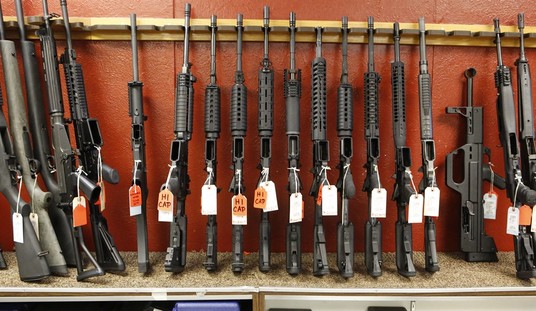“No, the US isn’t on the brink of a socialist apocalypse under Joe Biden,” the headline reads.
Jonathan C. Rothermel of the Pennsylvania Capital-Star recently penned an op-ed that lays out all the reasons why — because like so many liberals recently he appears to have discovered separation of powers and federalism — the new regime cannot turn us into a socialist hell-hole.
Some conservatives are bracing themselves for the onslaught of the so-called radical left agenda led by “The Squad” to massively re-distribute wealth and strip Americans of civil liberties, including gun rights. Gun sales in 2020 surged to record highs leading up to the election.
Well, yes, because that’s exactly what they’ve said they want to do, but never mind that Rothermel says, because 10th amendment, federal republic and judges.
The money quote, however, is this:
… federalism ensures that the power of the federal government is limited because it shares powers with state governments.
The 10th amendment of the Bill of Rights reserves powers not explicitly given to the federal government to states. On a wide range of issues, state governments primarily shape the rights that matter most to conservatives. For example, gun rights and abortion laws are primarily enshrined in state law rather than federal law.
First, let us note that the 10th Amendment is widely ignored by congress and the bureaucracy, using the Necessary and Proper and Interstate Commerce clauses and executive branch rule-making powers to justify almost anything they wish.
Nowhere is that more apparent than in the realm of gun rights, where attempts to “preempt” federal laws have run into major pushback.
For instance, in Kansas, in 2013 legislators passed the “Kansas Second Amendment Protection Act,” modeled on a similar law in Montana, it aimed to allow Kansans to — among other things — manufacture and purchase unregistered suppressors, so long as they did not leave the state.
The ink was barely dry on then-Governor Sam Brownback’s signature before then-Attorney General Eric Holder fired off a letter to him warning the sale or manufacture of suppressors would remain a federal crime.
Two Kansas men tested that, and found themselves convicted of a federal felony.
So no, state laws — despite a growing push to once again pass “2A Sanctuary” do not protect gun rights.
Moreover, as our own Cam Edwards points out, most of the so-called sanctuary laws are largely symbolic in nature.
An Arizona law currently under consideration reads:
AN ACT, LAW, TREATY, ORDER, RULE OR REGULATION OF THE UNITED STATES GOVERNMENT THAT VIOLATES AMENDMENT II OF THE CONSTITUTION OF THE 10 UNITED STATES IS NULL, VOID AND UNENFORCEABLE IN THIS STATE.
-
THIS STATE AND ALL POLITICAL SUBDIVISIONS OF THIS STATE ARE PROHIBITED FROM USING ANY PERSONNEL OR FINANCIAL RESOURCES TO ENFORCE, ADMINISTER OR COOPERATE WITH ANY ACT, LAW, TREATY, ORDER, RULE OR REGULATION OF THE UNITED STATES GOVERNMENT THAT VIOLATES AMENDMENT II OF THE CONSTITUTION OF THE UNITED STATES.
Well, naturally not, but the problem there is that unless a law has specifically been declared unconstitutional by SCOTUS, it is — by definition — constitutional.
Cam’s point is well taken that there is a much simpler way to limit the feds ability to interfere with the gun rights of law abiding Americans.
Take the California approach!
A more meaningful way of approaching the issue would be to take a page from California, oddly enough. The sanctuary state bill limiting law enforcement cooperation with ICE that was signed by then-Gov. Jerry Brown has been upheld by the federal courts, and could easily be used as a blueprint for turning a state like Arizona into a Second Amendment Sanctuary.
Rather than trying to base enforcement (or lack thereof) on the constitutionality of any new gun control law, legislation could declare or specify that local or state law enforcement will not work or assist federal agencies in, say, investigating or prosecuting any non-violent, possessory federal firearm offenses involving legal gun owners.
This, of course, could also be used to at least resist enforcement of other attempts to preempt state authority by the federal government as well.
States cannot exempt themselves from federal law, that is well established, but SCOTUS has made it clear that neither are states obligated to enforce it.








Join the conversation as a VIP Member